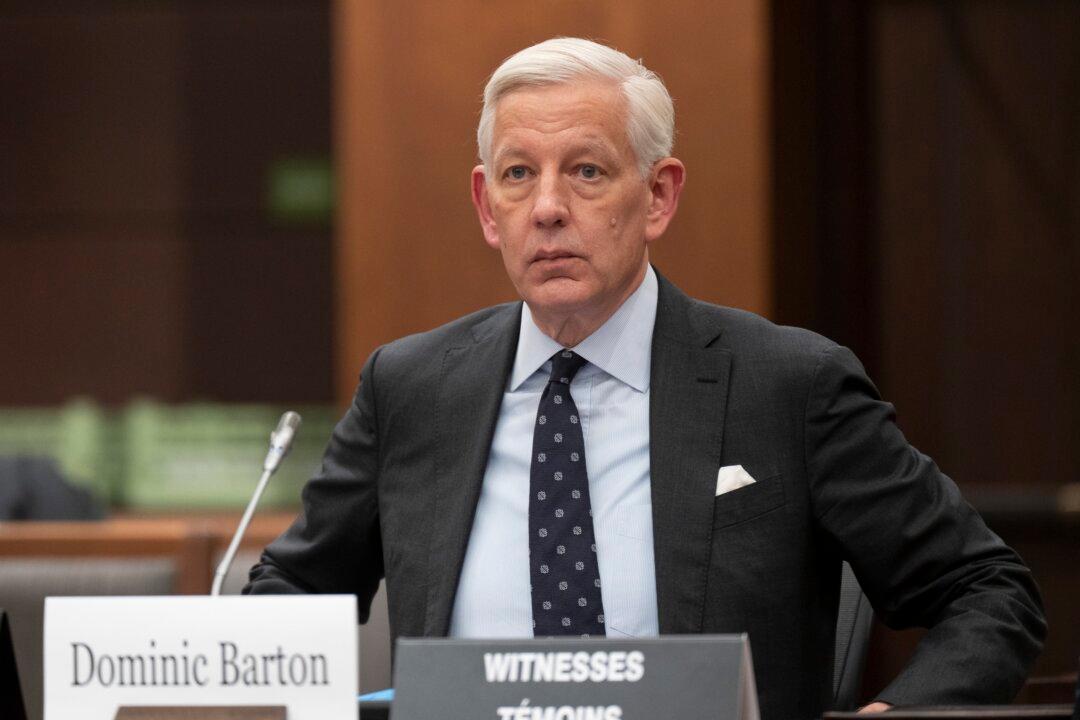Dominic Barton, the former head of U.S. consulting firm McKinsey, told MPs on Feb. 1 there is no close relationship between him and Prime Minister Justin Trudeau and that he had no role in landing his firm an increasing amount of contracts since the Liberals took power in 2015.
“I’m not a friend, I have a professional relationship,” Barton said as he testified before the House of Commons government operations committee.





